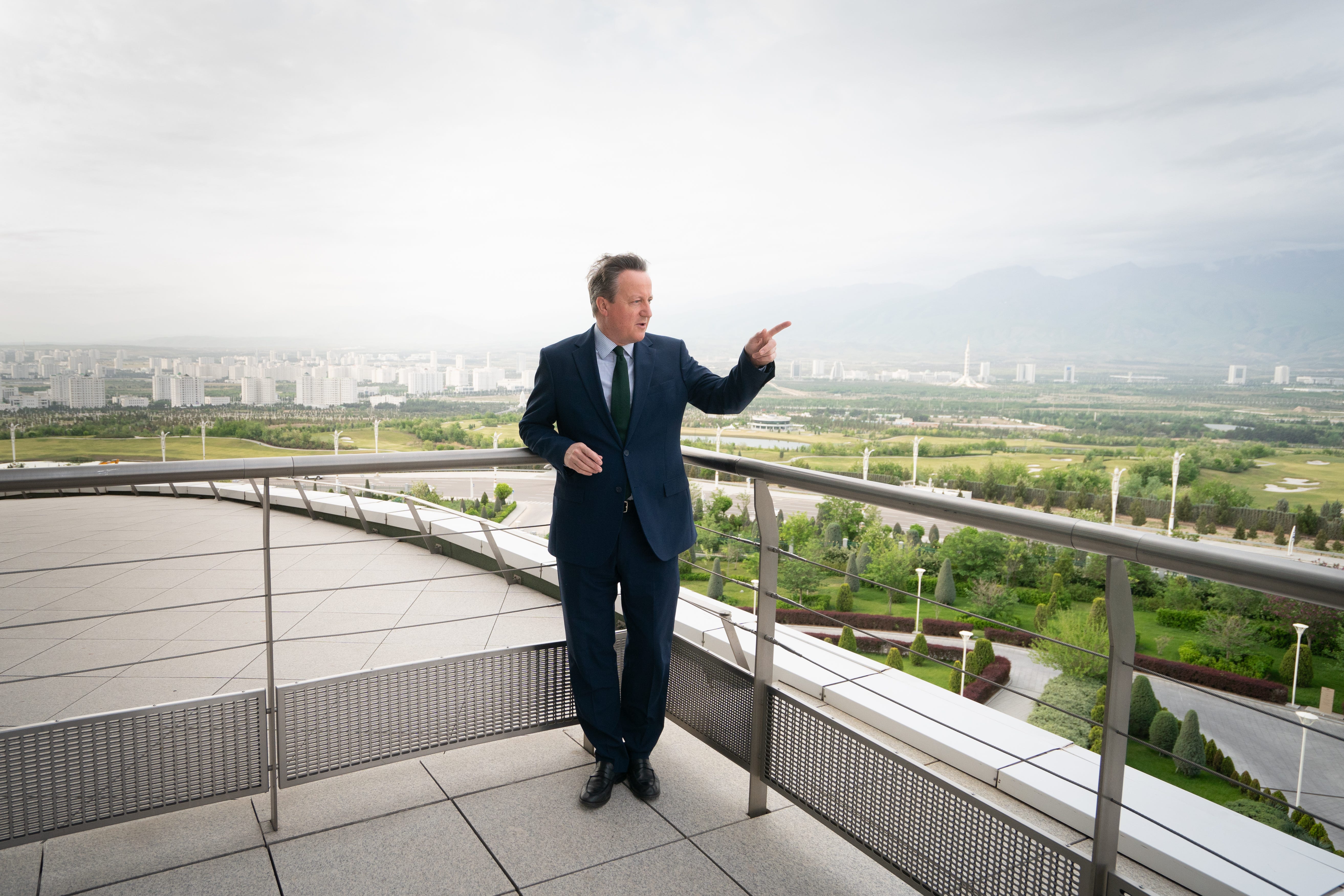UK needs to see Israeli plan for Rafah offensive, Lord Cameron says
The Foreign Secretary held talks with Israeli Prime Minister Benjamin Netanyahu last week.

Your support helps us to tell the story
From reproductive rights to climate change to Big Tech, The Independent is on the ground when the story is developing. Whether it's investigating the financials of Elon Musk's pro-Trump PAC or producing our latest documentary, 'The A Word', which shines a light on the American women fighting for reproductive rights, we know how important it is to parse out the facts from the messaging.
At such a critical moment in US history, we need reporters on the ground. Your donation allows us to keep sending journalists to speak to both sides of the story.
The Independent is trusted by Americans across the entire political spectrum. And unlike many other quality news outlets, we choose not to lock Americans out of our reporting and analysis with paywalls. We believe quality journalism should be available to everyone, paid for by those who can afford it.
Your support makes all the difference.The UK has still not seen a plan for Israel’s expected ground offensive in Rafah and the operation would “not work” without one, Lord David Cameron has said.
The Foreign Secretary, who met with Israeli Prime Minister Benjamin Netanyahu last week, echoed US Secretary of State Antony Blinken as he insisted “we need to see a plan” to protect civilian life.
The Israeli military appears to be preparing for a long-expected offensive on the city of Rafah in southern Gaza, where hundreds of thousands of people have taken refuge during the war.
Asked about his talks with Mr Netanyahu last week, Lord Cameron told the PA news agency: “He has made a series of commitments in terms of flooding Gaza with aid.
“My main message was that we want to work with you to make sure all of these things really happen.
We recognise you need a plan B and we have to make sure that plan B is deliverable without widespread civilian casualties
“That we get to 500 trucks a day, open Ashdod port, we open a new crossing near Erez, we have proper deconfliction inside Gaza so aid can move around, we switch back on the water, we make the Jordan corridor work properly.
“These are all things that we discussed and I said how important it was that we really progress them, and that was really the heart of the conversation we had.
“It doesn’t work unless there’s a proper plan to safeguard people in Rafah.
“That’s the most important thing … as the Americans would say, we haven’t yet seen a plan. We need to see a plan.”
It comes after the US, Israel’s closest ally, demanded to see a credible plan to protect civilians amid concerns across the international community over the anticipated operation.
Lord Cameron stopped short of describing the expected action as a “mistake,” as US vice president Kamala Harris has, adding: “The right way of ending this conflict, in our view, is a pause followed by a sustainable ceasefire, followed by effectively ending the conflict using political means.
“But if that’s not possible, we recognise you need a plan B and we have to make sure that plan B is deliverable without widespread civilian casualties.”
Israel continues to signal its intention to launch a Rafah offensive, with satellite photos analysed by the Associated Press appearing to show a new compound of tents being built near Khan Younis in the southern Gaza Strip.
The country has claimed it is seeking to evacuate civilians from Rafah during an anticipated attack but the military said it was not involved in the tent construction.
Meanwhile, the United Nations’ top human rights official said he is “horrified” by the destruction of two major hospitals raided by Israeli troops in Gaza and reports of mass graves near the sites.
Volker Turk called for independent and transparent investigations into the deaths, saying that “given the prevailing climate of impunity, this should include international investigators”.
The Israeli military claimed its forces were searching for the remains of hostages captured by Hamas during its October 7 attack when they exhumed bodies that Palestinians had buried. It said bodies were examined in a respectful manner and returned to their place.
Israeli strikes on Rafah killed 22 people, including 18 children, health officials said on Sunday.
The war has already killed more than 34,000 Palestinians, according to local health officials, and devastated Gaza’s two largest cities as well as leaving a swathe of destruction across the territory.
It was sparked by an unprecedented raid into southern Israel on October 7 last year in which Hamas and other militants killed around 1,200 people, mostly civilians, and abducted around 250 hostages.
Mr Netanyahu has vowed to continue the war until Hamas is destroyed and all those held captive are returned.